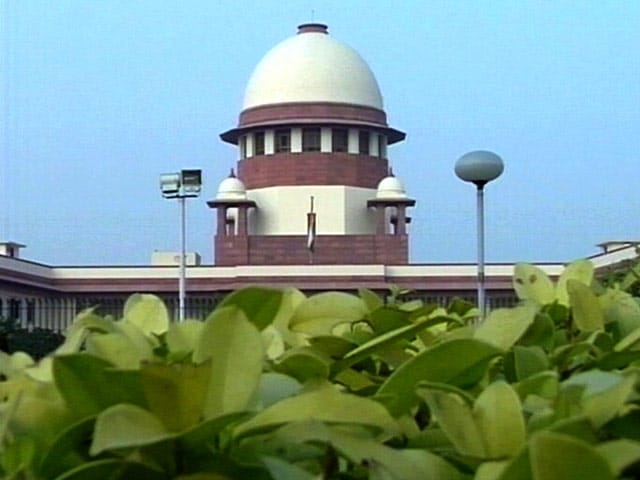[ad_1]

Till November 27, 2020 the six schemes received total cash flows of Rs 11,576 crore from maturities
The Supreme Court Friday rejected the objections to the result of e-voting process and held that unitholders have given their consent by majority to windup six mutual fund schemes of Franklin Templeton. The Supreme court, which said that winding up and disbursement of funds to unitholders would be in terms of its directions passed in the matter, directed that disbursement can be made in tranches without waiting for liquidation of all the securities or assets. The e-voting with regard to winding up of Franklin Templeton’s six mutual fund schemes — Franklin India Low Duration Fund, Franklin India Ultra Short Bond Fund, Franklin India Short Term Income Plan, Franklin India Credit Risk Fund, Franklin India Dynamic Accrual Fund and Franklin India Income Opportunities Fund — had taken place in the last week of December.
Franklin Templeton MF had closed these six debt mutual fund schemes on April 23 last year citing redemption pressure and lack of liquidity in the bond market. “In view of the aforesaid discussion, we hold that for the purpose of clause (c) to Regulation 18(15), consent of the unitholders would mean consent by majority of the unitholders who have participated in the poll, and not consent of majority of all the unitholders of the scheme.
“In view of the findings and reasons stated above, we reject the objections to poll results and hold that the unitholders of the six schemes have given their consent by majority to windup the six schemes,” a bench comprising Justices S Abdul Nazeer and Sanjiv Khanna said in its 54-page order. The bench said that winding up and disbursements would be in terms of its directions passed in the matter, including the February 2 order in which it had said that Rs 9,122 crore be disbursed within three weeks to the unit holders of these six schemes.
The bench noted that modern regulatory enactments bear heavily on commercial matters and, therefore, must be precisely and clearly legislated as to avoid inconvenience, friction and confusion which may, in addition, have adverse economic consequences.
“The legislator in the present case must, therefore, reflect and take remedial steps to bring about clarity and certainty in the Mutual Fund Regulations,” it said. The top court clarified that this order does not examine and decide other aspects and issues, including the questions whether regulation 18(15)(c) of the Securities and Exchange Board of India (Mutual Funds) Regulations would apply when the trustee”s form an opinion that the scheme should be wound up in accordance with regulation 39(2)(a) and the contention of objecting unitholders regarding misfeasance, malfeasances, fraud and the effect thereof.
The bench noted in its order that as per consolidated affidavit filed by the trustees and asset management company, securities equivalent to more than Rs 17,000 crores are yet to be realised.
“This is a substantial amount,” the bench said, adding that both the trustees and SEBI have stated in unison that liquidation or realisation has to be proceeded with caution as an attempt to offload the securities in haste can result in losses which would be detrimental and cause reduction in realisable value.
“We would not like to enter into this debate or give any specific directions but would observe that M/s SBI Funds Management Pvt Ltd shall follow the best effort principle so as to ensure expeditious and timely payment to the unitholders and assure the best possible liquidation value of the assets/securities to the unitholders,” it said.
The top court, with the consent of the parties, had appointed SBI Funds Management Pvt Ltd to undertake the exercise of winding up which would include liquidation of the holdings, assets or portfolio and distribution or payment to unitholders. The bench, while referring to some of the objections raised over the e-voting results, said in its opinion they are merely assertions or at best minor irregularities which do not have any substance.
“These contentions are mere nitpicks and would hardly justify rejection of the consent to winding up which has been expressed by more than 95 per cent of the unitholders who had voted. T S Krishnamurthy was appointed as the observer by SEBI in view of the directions given by this court to ensure fairness and transparency,” it said. It noted that during the hearing on February 2, advocates appearing for the objecting unitholders had agreed to disbursal of Rs 9,122 crores amongst the unitholders, “which, it has been directed would be in proportion to the unitholders” respective interest in the assets of the scheme, as suggested by SEBI.”.
The bench rejected the argument raised by some of the objecting unitholders that consent would be binding only on those who have consented to winding up of mutual fund schemes and cannot be imposed on others. It referred to observer’s report which stated that the six schemes put together as on December 3, 2020 had 3,15,600 unitholders. The top court is hearing an appeal filed by Franklin Templeton against the Karnataka High Court’s order which stopped the fund house from winding up its debt fund schemes without prior consent of the investors.
Till November 27, 2020 the six schemes received total cash flows of Rs 11,576 crore from maturities, pre-payments and coupon payments since April 24 last year. The cash available stands at Rs 7,226 crore as of November 27, 2020 for the four cash positive schemes, subject to fund running expenses.
[ad_2]
Source link












